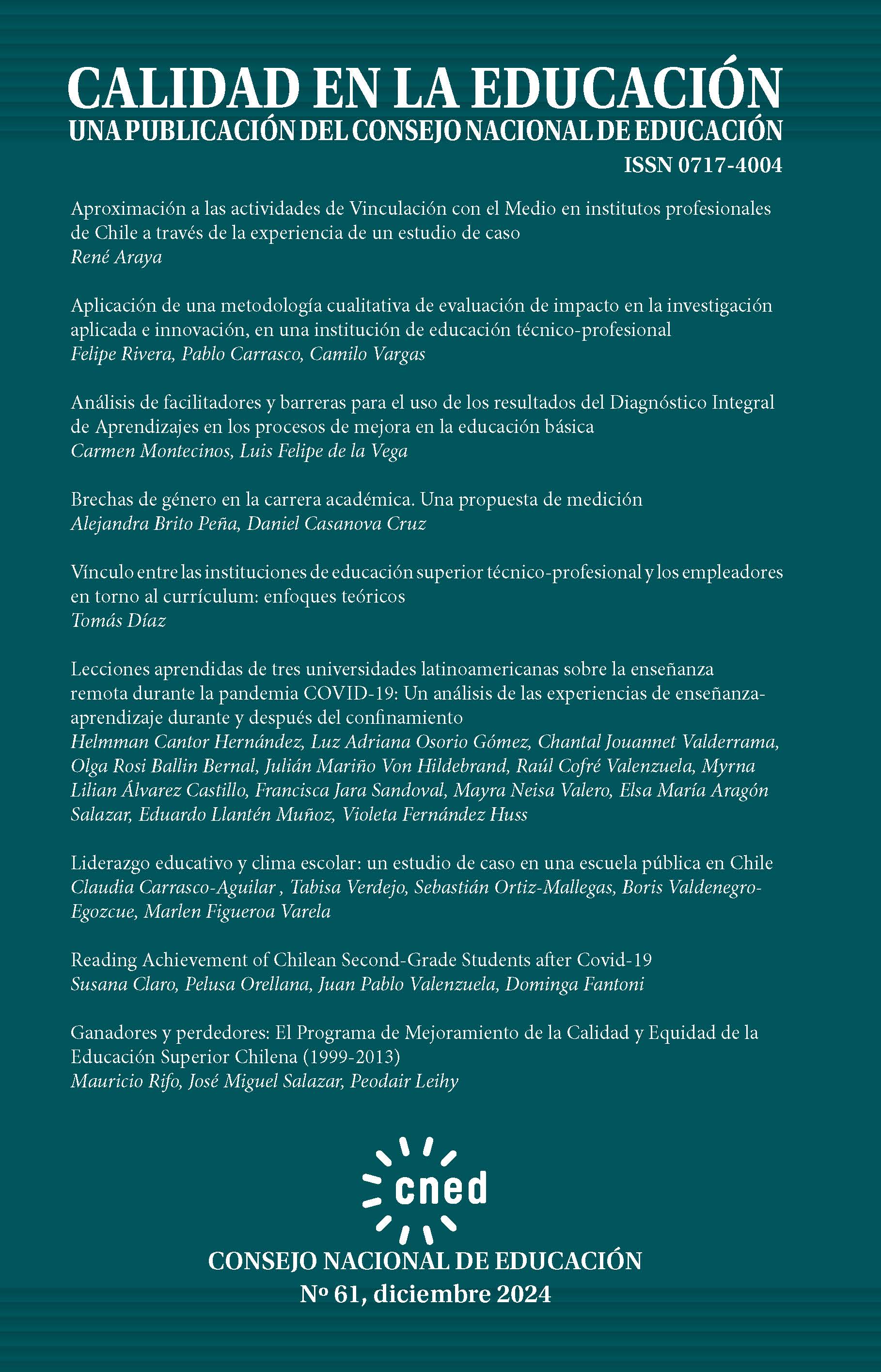Lessons Learned from Three Latin American Universities on Remote Teaching During the COVID-19 Pandemic: An Analysis of Teaching and Learning Experiences During and After Lockdown
DOI:
https://doi.org/10.31619/caledu.n61.1473Keywords:
Pandemic, Remote teaching, Adaptation, LearningAbstract
In response to the COVID-19 pandemic, educational institutions worldwide suspended in-person classes and pivoted to remote teaching to maintain academic continuity. This study analyze how three prominent Latin American universities −Universidad de Los Andes (Colombia), Pontificia Universidad Católica (Chile) and Tecnológico de Monterrey (Mexico)− adapted to this unprecedented shift. The research underscores the importance of assessing the impact on learning, understanding the new educational realities and leveraging the lessons and best practices developed during this period. Collaboration among institutions and colleagues enabled a comprehensive understanding of the challenges faced by higher education. The study employed a mixed method approach, collecting data from the faculties and students via surveys, institutional questionnaires, and focus groups. Key findings reveal significant adaptations in learning environments, changes in teaching methodologies, and challenges in assessing learning outcomes. As in-person teaching resumed, concerns emerged about achieving learning objectives during the remote phase and addressing new difficulties in the teaching-learning process. Additionally, the study highlights the need to rethink educational modalities and adapt to evolving learning and demands. Likewise, the importance of safeguarding the well-being of both students and educators to foster effective learning is also highlighted.
Downloads
Published
Issue
Section
License

This work is licensed under a Creative Commons Attribution 4.0 International License.
Authors retain their Copyright and only transfer a part of these to the journal, accepting the following conditions:
Authors keep their rights as authors and guarantee the right to the journal for the first publication of their work, which is simultaneously subject to the Creative Commons Attribution license allowing third parties to share the study accrediting the author and first publication in this journal.
Authors may adopt other non-exclusive license agreements for distribution of the version of the published work (e.g. inclusion in an institutional thematic file or publication in a monographic volume) accrediting initial publication in this journal.
Authors are allowed and recommended to share their work over the Internet (e.g. in institutional telematic files or their website) before and during the submission process, which may lead to interesting exchanges and increased citation of the published work. (See The effect of open access).

